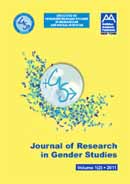A Gentleman’s Agreement: Female Illegitimacy in Nineteenth-Century Male-Authored Fiction
A Gentleman’s Agreement: Female Illegitimacy in Nineteenth-Century Male-Authored Fiction
Author(s): Carolyn KrausSubject(s): Gender Studies
Published by: Addleton Academic Publishers
Keywords: illegitimacy; nineteenth-century fiction; hero’s journey; transgression; patriarchy
Summary/Abstract: The structures of desire in male-authored Western novels from Fielding’s Tom Jones to James Joyce’s Ulysses and beyond share many aspects of the fantasy of illustrious paternity set forth by Freud and elaborated by his protégé, Otto Rank, as The Hero’s Journey, a paradigm recurring in many classic epics and fairy tales. This identity journey, which ends with the hero’s return to the father and with reintegration into his world, illuminates the figure of female bastard in male-authored Western fiction and figures in a number of nineteenth-century novels, including Tolstoy’s Anna Karenina, Hawthorne’s The Scarlett Letter, and Dickens’ Bleak House. Rediscovery of the father means confirmation of a paternal order, but a bastard, by definition, lives outside of paternal orders. Without claim to a father’s name or inheritance, furthermore, the bastard poses a threat to patriarchy. Thus, in the identity journey, which is a confirmation of a social order, the bastard’s symbolic function is to be transformed and legitimized. The following study explores how, in spite of the complexity and sympathy with which they draw both mother and illegitimate child, these nineteenth-century authors eventually impose upon their transgressive female characters the same classic paradigm, endowing the bastard with an illustrious father and reintegrating her into a patriarchal order.
Journal: Journal of Research in Gender Studies
- Issue Year: 1/2011
- Issue No: 2
- Page Range: 73-94
- Page Count: 22
- Language: English
- Content File-PDF

